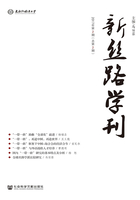
结语
第一,经济全球化是人类现代化发展到当前阶段的必然产物。现在有的国家强调保护主义、反对全球化,是违反客观规律的,很难行得通。国际金融危机的爆发及之后国际经济深度调整的艰难,暴露出现有国际经济体系的严重缺陷及现有国际经济秩序的不合理性。“一带一路”倡议不是要推翻现有国际体系另起炉灶,而是要在其基础上进行改革和完善。建设“一带一路”符合这一发展规律,是有广阔前景的。
第二,“一带一路”提倡合作共赢、共同发展,是符合发展中国家利益的。近年来,一些国家政局动荡,地区出现极端思想和恐怖主义活动,经济不发展和广大人民生活困难是主要原因之一,实现发展有助于国家和地区的和平稳定。发展中国家是中国外交的根基,是中国走和平发展道路的真诚伙伴。中国希望它们持续发展,有利于这些国家本身,也有利于世界和平。
第三,“一带一路”建设会遇到困难和曲折,但前途是光明的。主要困难是在项目推进时,有的国家安全条件不好、有些国家法律法规不健全、官僚主义严重、办事效率低,更重要的一点是开放意识不足,旧的保守观念往往形成阻力。谋和平、求发展已成各国共识,各国都在尽力避免贫困落后带来的社会问题,“一带一路”建设无疑提供了一个良好平台,这是众多国家纷纷参与的原因,共同的愿望产生共同的努力,这是“一带一路”建设成功之本。
倡议是中国的,机遇是世界的。
(责任编辑:沙旭沛)
“The Belt and Road”Initiative Boosting to Advance the Globalization
Abstract: It's been four years since China has put forward“The Belt and Road”initiative, during which the world economy experienced downturn, followed by trade protectionism and increasing disputes among countries in economy and trade. As a result, economic globalization is facing challenge. “The Belt and Road”initiative is designed to promote world economic restructuring, adhering to economic globalization as China's“Traditional Chinese Medicine”for participating in global governance. The model of economic participation, featuring mutual consultation, construction and sharing, is supported by the rest of the world. Therefore, sticking to economic globalization against the backdrop of“The Belt and Road”initiative, and opposing trade protectionism is an important way to benefit the whole world.
Keywords: The Belt and Road; Globalization; Global Governance